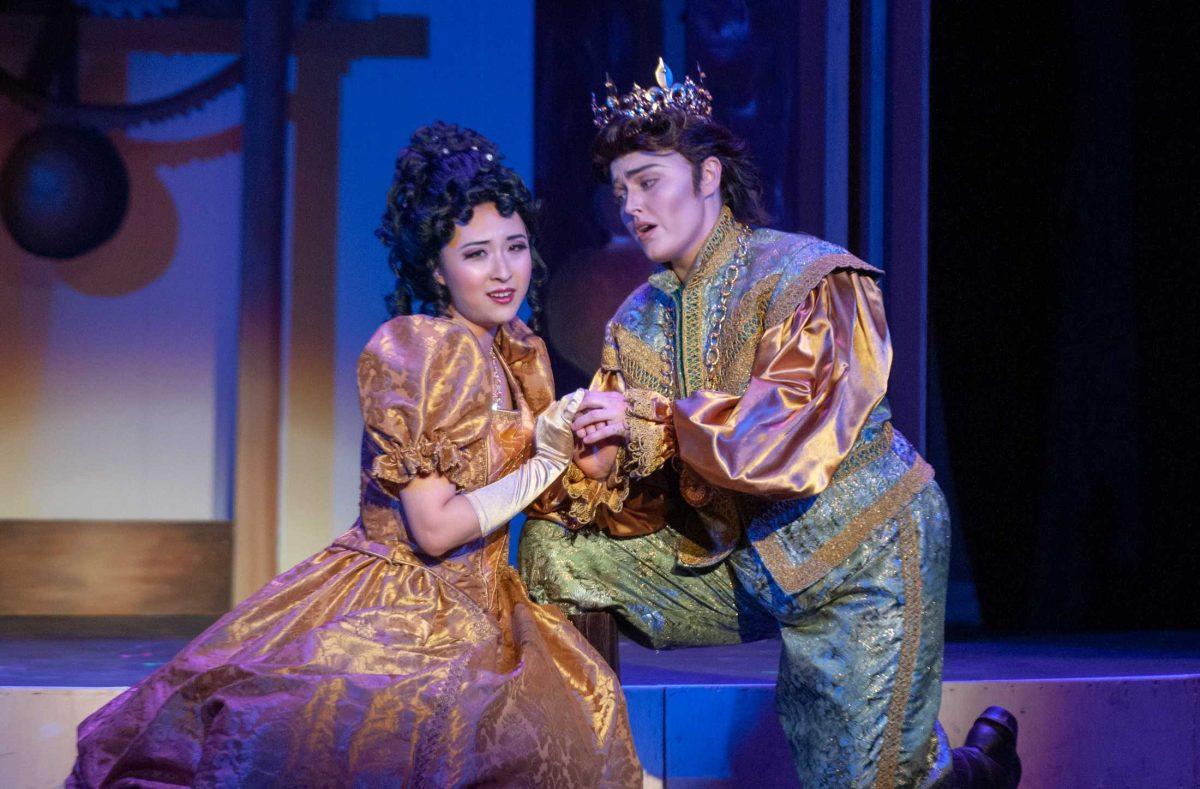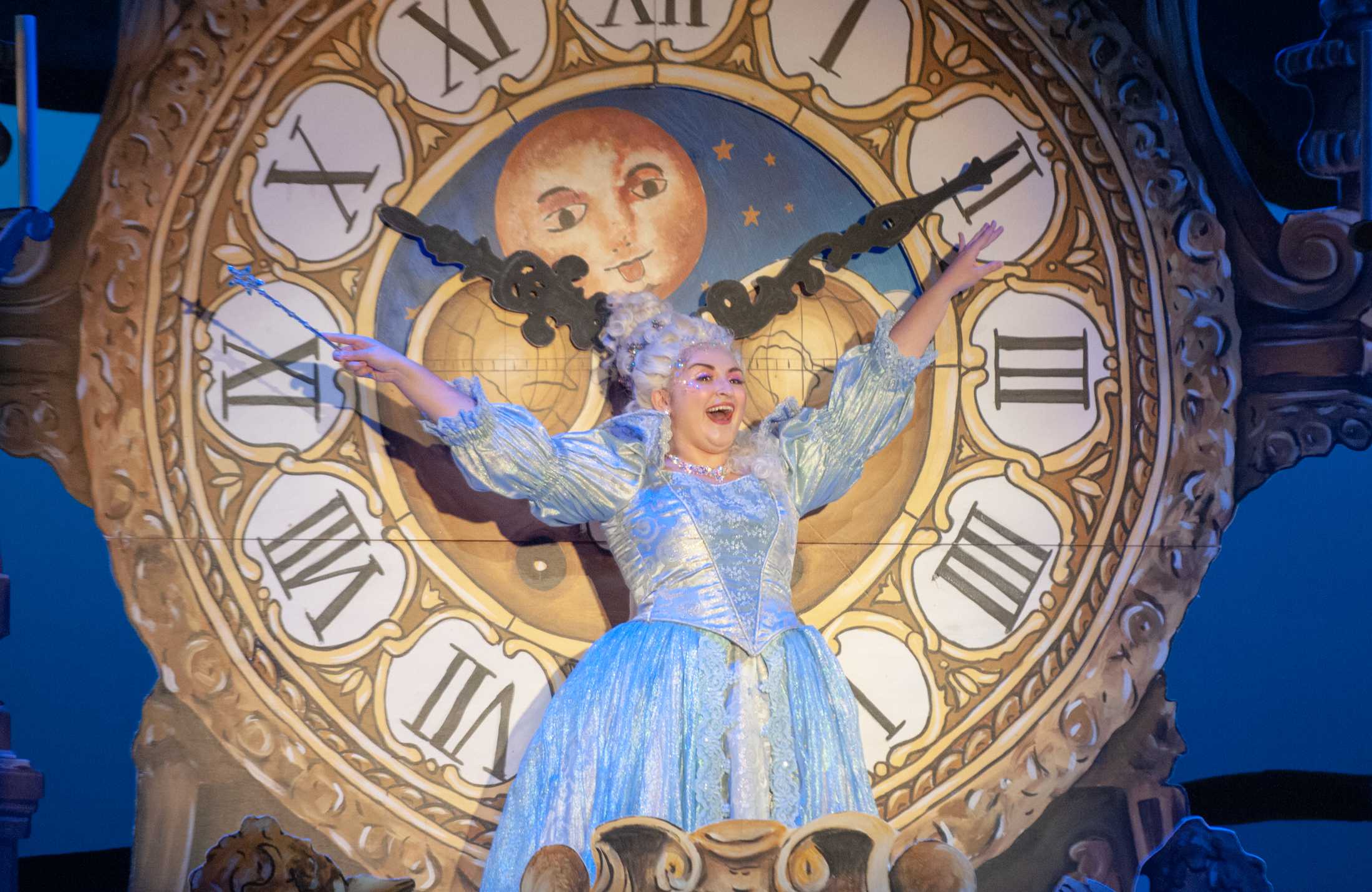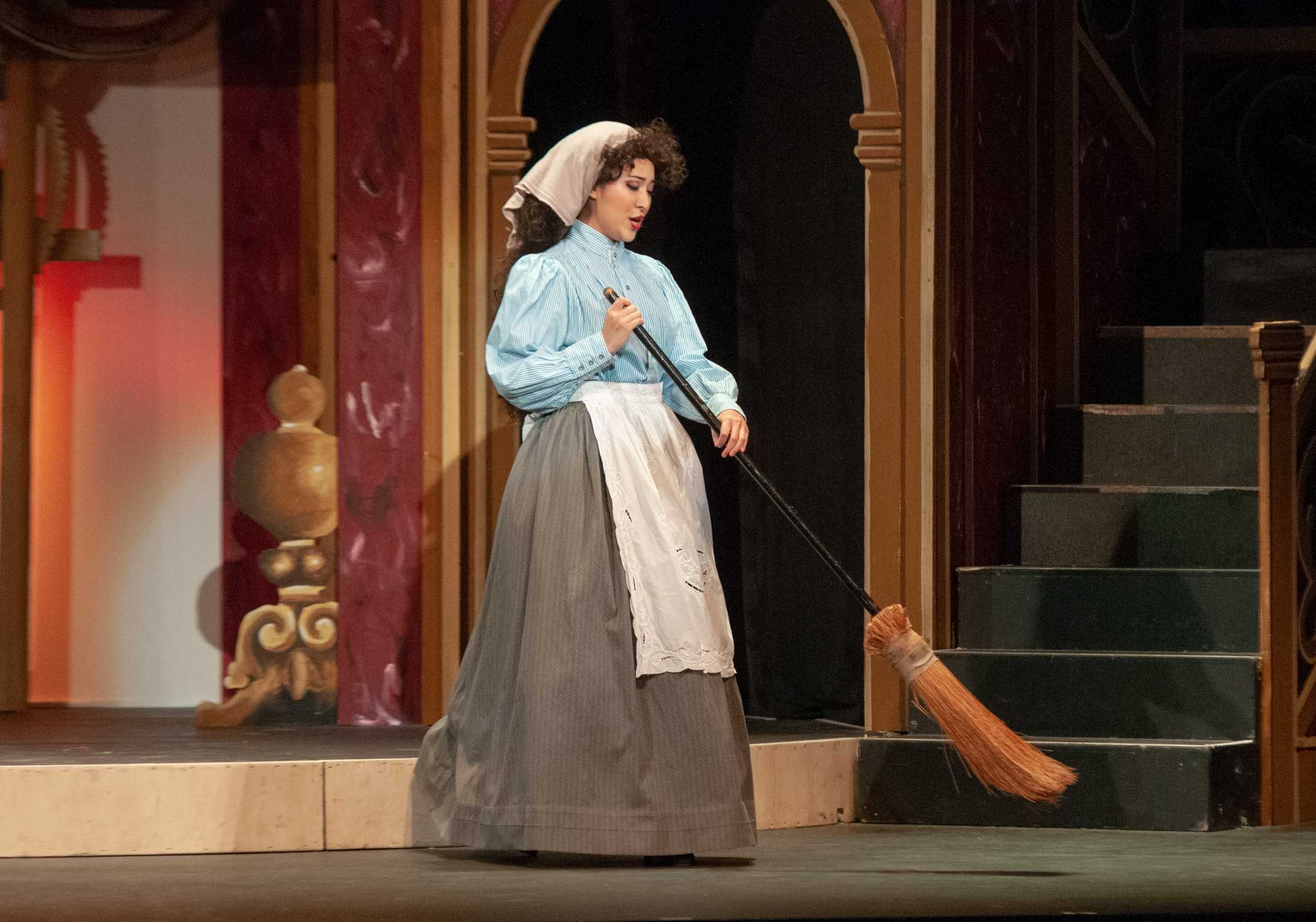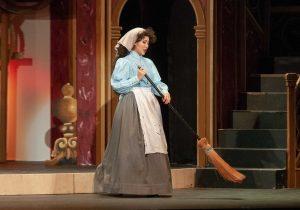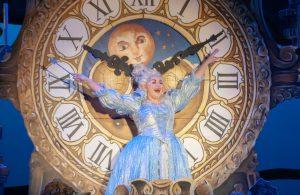The Turner-Fischer Center put on the opera performance of Jules Massenet’s “Cendrillon,” Cinderella, on Friday, Nov. 11, and Sunday, Nov. 13, at the Shaver Theatre in the Music and Dramatic Arts Building.
James Byo, director of the School of Music, and Carl Prince Matthies, professor of music education, said the two performances featured the same cast, with LSU students in all onstage roles. Byo said the Turner-Fischer Center puts on four opera performances each year.
Byo said LSU opera is part of the School of Music and one of the best-noted opera programs in the United States at the college level, mentioning that it’s very popular because students know they can be involved in up to four fully staged operas within any academic year.
“LSU is a much-sought destination for serious opera singers,” Byo said.
Byo said there are six full-time voice faculty members that help teach and train the opera singers, as well as two full-time faculty members that are a part of the opera. He said these eight people all form the voice opera area and work together on setting up the opera productions.
He said “Cendrillon” is the second play of the year. The program performed “Viva Italia!” in September, which featured an array of individual scenes from famous Italian operas in a collage format. He said there will be two more performances in the Spring of 2023, with the first being Stephen Sondheim’s “A Little Night Music in March,” and the second being a double-header of “Derrick Wang’s Scalia/Ginsburg” and “Gilbert & Sullivan’s Trial by Jury.”
“Performance is part of what we do in the School of Music and is fundamental to our academic mission,” Byo said.
According to Byo, students getting degrees in the school of music are not only taking classes but also are involved in a performance program, opera being one of them. LSU students also have backstage roles like stage directing and costuming, in addition to being members of the opera. He stated that the members of the opera often help chip in backstage so the performances can be as high quality as possible.
“The school of music is a school by day and a performing arts organization,” Byo said.
Byo said that there are two major donors, John Turner and Jerry Fischer, who have given a $4 million investment to the LSU College of Music and Dramatic Arts. The Turner-Fischer Center for Opera was named after them.
Dugg McDonough, an associate professor of opera and artistic director of the Turner-Fischer Center for Opera at LSU for the College of Music and Dramatic Arts and School of Music, said the program is in a very enviable position because of Turner and Fischer. He said that without their help, the opera program might not be a nationally recognized program.
McDonough said their opera production is doing something different than many other productions. He said it’s based on a visit he made to a clock museum in Geneva, Switzerland. He was looking for a new way to do Cinderella when he was looking at the European clocks, and he thought they would make a very ornate setting and realized how important time is in the telling of Cinderella.
McDonough also bought a copy of the “Mother Goose Tales” in French and came across a “Cendrillon,” by Charles Perrault. He saw it was one of the early French tales of “Cinderella,” and its publication date is 1697, almost 200 years earlier than Massenet’s telling of “Cinderella.” He decided to combine both stories in an opera production.
The story starts with Cinderella at home with her family in the late 1800s. When she falls asleep with the Fairy Godmother, she time-travels back 200 years. She wakes up in the world of the prince who she meets in the elegant period of the 1600s.
“I am very unique and proud of that concept because I don’t think anyone has done it that way before,” McDonough said.
McDonough said the opera program has won 13 national awards coming from different organizations. He said there are many famous alumni, including soprano Lisette Oropesa. The program has students performing all the way from the San Francisco Opera to opera in Europe and Berlin.
For the future, McDonough said he wants to see even more scholarships given to students that could help bring good singers into the program and more financial support to help the productions stay at a top-notch level for students. He also said he would like to hire a composer to write an opera for the Turner-Fischer Center with the students in mind.
Cullen Sadler, the marketing coordinator of the College of Music and Dramatic Arts, said “Cendrillon” is an operatic rendition of the Cinderella fairy tale, presented in four acts and sung in French with English supertitles.
Sadler said all of the performers in this production are LSU students at both the undergraduate and graduate levels. He also said the orchestra is mostly LSU students as well as LSU faculty members of the opera community.
Sadler said that while the opera encourages in-person attendance, they recognize that the pandemic has changed this. Yet, Sadler said he feels in-person is the best way to experience the opera, and the College of Music and Dramatic Arts is always looking for ways to evolve its productions and invest in resources with new delivery methods that bring the art of opera to the audience.
Sadler said last year, the Turner-Fischer Center and LSU Symphony Orchestra put together the “Operafest!”, which was a concert of famous opera scenes. Sadler said the audience could go to the Union Theater to see it in person, tune in to the live stream, or watch the recording posted later on its YouTube channel.
Sadler said “Cendrillon” is a great point of entry for those who have never experienced opera.
“It is a great point of entry for someone who has yet to experience this incredible fusion of musical and theatrical pursuits,” Sadler said.



